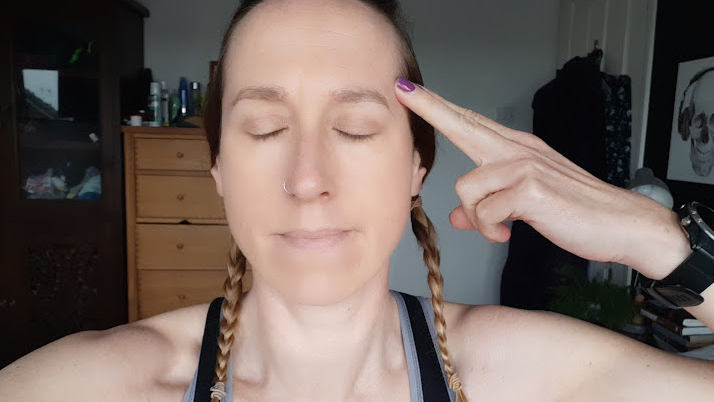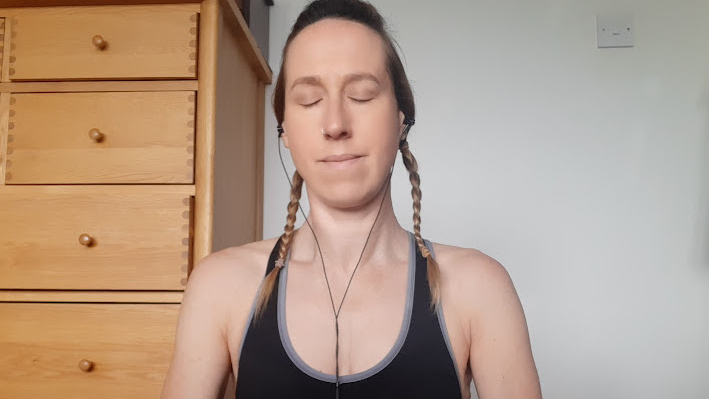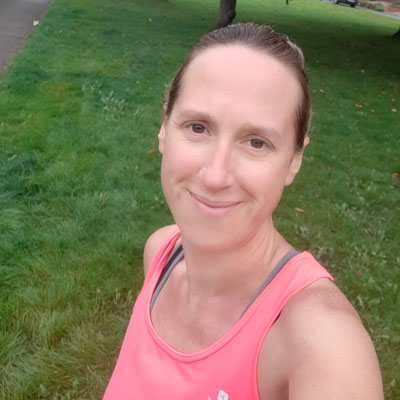I tried a mindful running app for a month, and it really helped boost my confidence
I signed up to an ultramarathon and wanted to see if meditative runs could improve my performance


Start your week with achievable workout ideas, health tips and wellbeing advice in your inbox.
You are now subscribed
Your newsletter sign-up was successful
Running 26.2 miles is a long way, as anyone who’s run a marathon will attest. However, running more than a marathon a day, for five days, in a hot country while climbing nearly 23,000 ft (7,000 meters) is something else.
And yet, for some reason, this is what I signed up for. In June I traveled to Tanzania to run more than 155 miles (250km), including halfway up Mount Kilimanjaro. Prior to the trip, my training ramped up, with weekend ultra-marathons becoming the norm—plus back-to-back days when I ran several marathons in a row.
All of this took time and energy, but also a huge amount of willpower and mental strength. Most of my runs were on trails and often involved a lot of navigation so I would often be out for seven or eight hours on my own. I needed to make sure I was wearing the best marathon running shoes, but my mind also had to be ready.
Even with podcasts on, running can be lonely. And this makes it easier for your mind to get in your way and make you feel like you want to stop. But after reading about other runners' experience with mindful running, I decided to give it a try.
It's easy to fit into your day
Although there are plenty of guided meditations for beginners, I wanted something a bit more targeted to my challenge, so I tested the Mind Over Matter series from the WithU training app. Although known as an audio workout app, there are meditation and mindfulness sessions in there too.
There are four classes available for free: Performance Preparation, Quiet Mind, Your Inner Voice and Self-Belief. I subscribed to the app to access the full collection of meditation and affirmations along with a host of fitness programs and exercise videos that can be played directly on an Apple Watch.
Each session lasts 6-11 minutes and is hosted by one of three meditation coaches. Initially, I decided to listen to the sessions while running (using bone conduction headphones like the AfterShokz Aeropex) so I could get in the zone and absorb my surroundings.
Start your week with achievable workout ideas, health tips and wellbeing advice in your inbox.
Focusing on my motivations really helped

The first session, Performance Preparation, focused on visualizing the scene of a forthcoming event and how I wanted to feel and to be received. I tried to think about the Tanzania race, but the session seemed more geared towards a career event, such as an important presentation.
It did make me think about wanting to make my family proud, and brought up a dogged determination to prove people wrong who doubted that I could complete the challenge. My main take away was that I needed to focus on my family and the naysayers for when things got tough in Africa.
The Meditation For Bravery session seemed apt considering the challenge I was about to undertake. This session centered on dealing with failure, taking a chance and navigating the emotions around uncertainty. Again, there were tips to prepare the mind and work through the scenarios of an unpredictable event.
Similarly, the Positive Self Talk session spoke about looking for reasons to feel good—and acknowledging them. I honed in on how far my training had come since being laid up with a broken toe last year, and the belief that I was getting stronger with each long training run.
Maintaining a mindful outlook wasn't always easy
Some of the other sessions were less effective, however, particularly when they leaned towards abstraction. In the Self Belief session the coach asked me to “bring awareness to the space between your thoughts”.
The mantra also focused on self-love and slowing thoughts down to overcome everyday challenges rather than mentally tackling a single event. Then I had to visualize a theater screen with all of my thoughts flowing around during the Inner Voice class to experience the “warm glow of higher self”.
I admit that by this point I was lost, physically and metaphorically, in a sheep field in the middle of nowhere, with the only thought passing through my mind being, “Where on Earth is the yellow footpath post?”
It highlighted that learning how to meditate is a long-term practice, rather than a short-term fix. With repeated use, you can start to see how your brain works and the types of thoughts your mind gets filled with.
But it's also important to remember that meditation and mindfulness aren't really about removing all but positive thoughts. The aim is to see the thoughts as though they're not part of you—you see them coming and going instead.
So when you're faced with a difficult or stressful circumstance—like feeling exhausted during a run or lost in a field—it's still okay to feel anxious or unhappy. Developing mindfulness helps you see that as a passing feeling and return to the present moment.
Did it actually improve my running?
On reflection, listening to these sessions while in a quiet spot at home would have been more productive and would have helped me to focus on positive thinking.
I regularly did this with the Fulfil Your Potential class that is, essentially, a stretching cool-down session. I found it helped to relax and lower my heart rate after a long day of running, although a recovery day workout would probably do the same.
Across the meditation series I found there was too much focus on broad themes such as “upgrading habitual thoughts” and calming the mind during a busy working week, though I think the program will have benefits for endurance athletes.
I picked up worthwhile mindfulness tips that kept me motivated during training and during the big event itself. I worked through multiple race outcomes in my mind and found my motivation to keep running for when I inevitably got exhausted.
Honestly, though, I prefer to stay grounded to the warm glow of the African sun rather than my higher self.
Lily Canter is a freelance money, health and lifestyle journalist with more than 20 years' experience. She writes about fitness for Runner's World and Trail Running magazines and focuses on personal finance for Yahoo! Finance UK, Metro, The Guardian, and the Mail on Sunday. In her spare time she is an ultra-runner, canicrosser and running coach. She also co-hosts the award-winning podcast Freelancing for Journalists.
